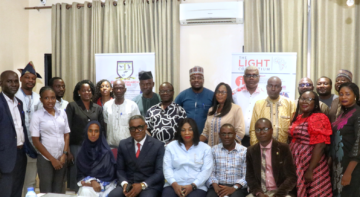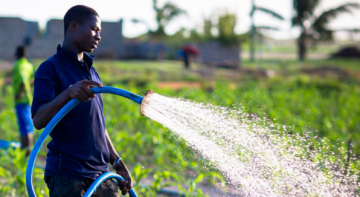Blogs

With an increase in global health initiatives and the intensification in funding for health programmes, there is a keen interest for researchers to take up their think tank role in championing the uptake of research by decision-makers. Additionally, funders – governments, industry, and philanthropic organisations – and the public are interested in comprehending the impact of investments in research to justify continued funding of research. Increased collaboration between researchers and policymakers or practitioners is one of the key strategies towards increasing the uptake of research into health policy and program development. Many research institutions and universities have responded by developing policy engagement or research uptake and communication strategies to guide effective engagement with policymakers, the public and the media.
In overcoming the barriers that exist to effective policy engagement, the African Institute for Development Policy (AFIDEP) developed a curriculum on engagement strategies with an emphasis on understanding the policymaking processes and the incentives and disincentives of Evidence-informed Decision making (EIDM) in the public sector. EIDM is defined as a process in which high-quality evidence from research, local data, and professional experiences is synthesised, disseminated, and applied to decision-making in policy and practice.
Effective use of strategic communication tools to represent research programmes or institutions to policymakers and the media
Through the Enhance DELTAS programme, AFIDEP has conducted a series of week-long workshops on policy engagement and evidence uptake between October 2020 and February 2021. The workshops targeted PhD and post-doctoral early career researchers as well as consortium leaders or senior researchers who are responsible for leading research uptake and sought to enrich the skills of individuals to maximise research uptake and policy engagement.
Packaging and communicating key findings through the channels of information that health officials and policymakers use and trust helps to maximise the impact of research on policy and practice. In determining and customising the workshop curriculum, information derived from completed needs assessment questionnaires administered to participants were used to develop tailor-made interactive training materials. The survey results pointed out a gap, in that majority of the early career researchers had not participated in any prior workshop on policy engagement and that their respective institutions lacked a policy engagement strategy. Participants indicated packaging and dissemination of research for different policy audiences as key areas they wanted training in. Specifically, one participant said, “I want to make my research understood by policymakers”, while another highlighted the importance of “the practicalities of the policymaking process including how to effectively maximize impact across diverse policy/decision-makers”.
The importance of EIDM for better health policies and programmes
According to a study on the barriers to the uptake of evidence, obstacles to the uptake of research by decision-makers include lack of use, lack of awareness, lack of familiarity, lack of usefulness, lack of motivation, and external barriers. The workshops, dubbed “ENHD 101: Policy Engagement and Evidence Uptake for Early Career Researchers and ENHD 102: Enhancing Institutional Capacity for Policy Engagement and Evidence Uptake”, provided participants with strategies to remedy these obstacles. One participant recommended, “the need for research institutions to be supported in training ‘communicators’ who can help bridge the gap with policymakers…..and that the engagement should be formalised in such a way that we know this is something that happens annually or biennially. ”
Interactive virtual sessions
The workshops started with a review of the policymaking process, an introduction to the principles of EIDM, and the global landscape for health policymaking. This was followed by discussions on how to create enabling cultures for policy engagement with research institutions and universities. Participants were trained on the practical aspects of developing a policy engagement and communications strategy as well as the practical aspects of implementing a communications strategy. Under ENHD 102, the session facilitated a joint workshop between the senior research leaders and policymakers from the Heightening Institutional Capacity for Government Use of Health Research (HIGH- Res programme -Kenya, Malawi, and Uganda- and from West African Health Organization (WAHO).
Subsequent webinars followed based on topical demand by participants, namely: Developing Effective Communications and Engagement Strategies: and How to effectively use Social Media. Furthermore, six participants enrolled in a six months mentorship programme that sought to support the participants to develop policy engagement materials.
Testimonial Videos:
Enhance DELTAS is a programme led by the African Institute for Development Policy (AFIDEP) and funded by the Wellcome Trust. It seeks to provide research uptake and policy engagement support to awardees of the Developing Excellence in Leadership, Training and Science (DELTAS) Africa initiative, led by the African Academy of Sciences.
Related Posts





